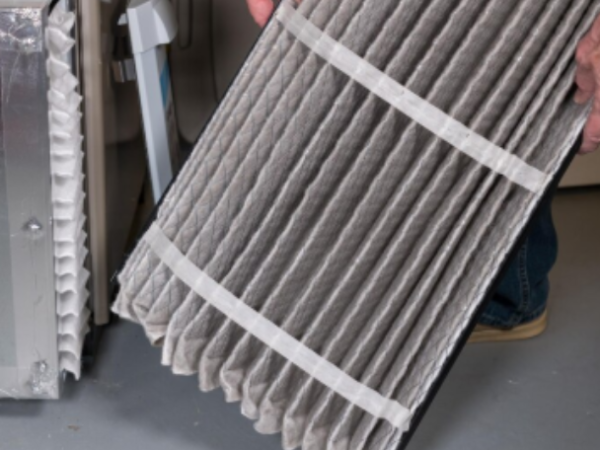HVAC coil coating is the process of applying a protective layer over the metal surfaces of coils. Epoxy, silane, polyurethane, and fluoropolymers are popular coating materials used for residential, industrial, and commercial HVAC units.
Wondering how HVAC coil coating can impact the overall functionality and performance of your heating and cooling system? This guide is for you. Here are five benefits of coil coating:
1. Corrosion Protection
Corrosion is one of the leading causes of premature HVAC coil damage. It is caused by moisture, salts, and other environmental factors. When it comes to HVAC units, two types of corrosion cause issues:
Pitting: It begins with the breakdown of a protective layer on the metal surface. You will find localized cavities or “pits” on the metal surface. Pitting corrosion is typically caused by harsh chemicals, such as chlorides. Chlorides are found in numerous residential and commercial use products, including toilet bowl/tile cleaners, fabric softeners, carpeting, paint strippers, etc.
Formicary: It usually occurs in copper and copper alloys. Formicary corrosion is characterized by tiny, ant-nest-like pits that can penetrate deep into the metal. It is typically caused by organic acids, such as formic acid and acetic acid.
Formic acid is usually found in wood smoke, cosmetics, and disinfectants. Acetic acid can be found in vinegar, adhesives, and silicone caulking.
Coil coating acts as a barrier between such harmful substances and HVAC coils, preventing corrosion and wear and tear.
2. Protection Against Environmental Elements
Environmental elements like moisture and UV rays can cause damage to HVAC condenser and finned tube coils. This is especially true for industrial and commercial buildings with extensive HVAC systems. High pollution can also cause wear and tear.
Three types of coil coating can ensure protection:
Epoxy coating: It offers excellent adhesion and durability. Above all, epoxy coating is cost-effective.
Silicone-ceramic coating: It bonds to the metal surface at a molecular level, providing robust protection.
Zinc-enriched coating: It ensures protection for galvanized steel coils.
3. Energy-Efficiency
Much to everyone’s surprise, HVAC coil coating doesn’t negatively impact the heat transfer efficiency of your HVAC unit. In reality, when coils are free from damage, pollution, and other obstructions, they’re more likely to ensure heat transfer.
Moreover, your HVAC system won’t have to work as hard to maintain optimal indoor temperature. The result? Low energy usage and reduced electricity bills.
4. Low Maintenance
Let’s be real: HVAC units are pretty expensive. Things get out of hand when they start costing you thousands of dollars every few months in maintenance. HVAC coil coating can prevent this.
Coating will prevent corrosion and environmental damage, reducing the need for repairs. Think of HVAC coil coating as an investment that will pay off later.
5. Extended HVAC Lifespan
Frequent repairs reduce the lifespan of an HVAC unit. Coil coating can reverse some damage. It will extend the lifespan of your HVAC system.
You can expect a better return on investment and stress-free living. Lastly, coil coating can increase the resale value of your residential or commercial building.

